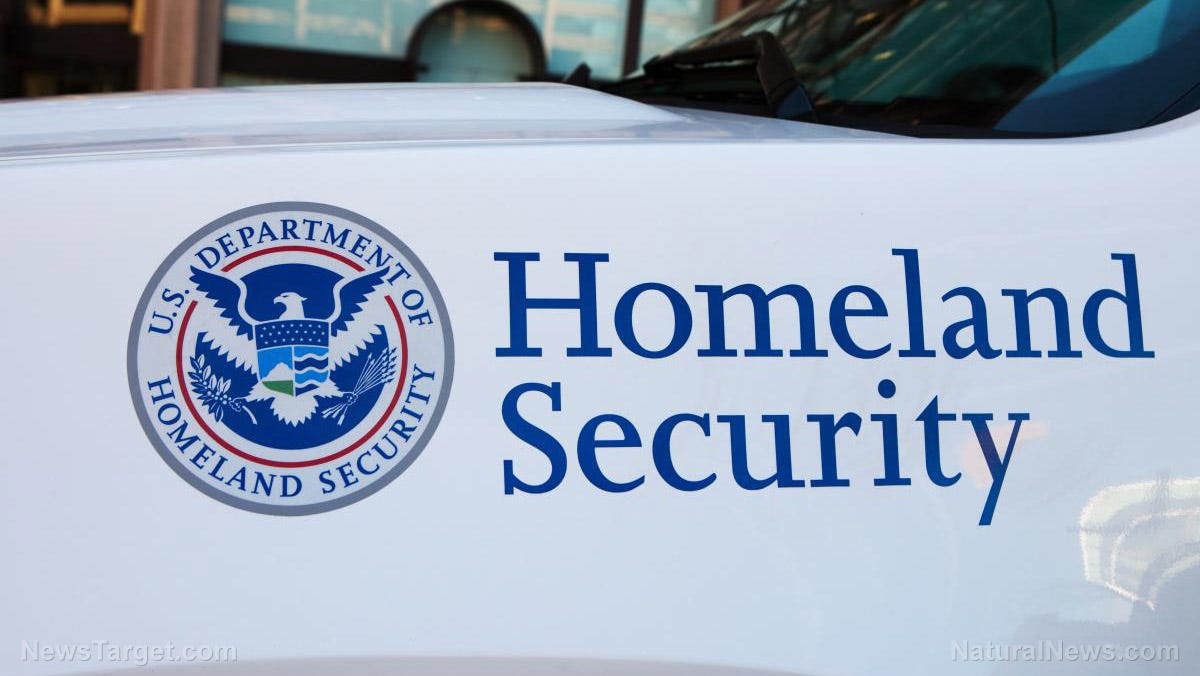EXPOSED: Big Tech’s censorship regime secretly driven by Homeland Security spook
A Homeland Security panel chair shaped Big Tech's censorship strategies behind closed doors.
By Ethan Huff
April 9, 2024
It has come to light that the Department of Homeland Security (DHS) is involved with Big Tech censorship.
A woman by the name of Kate Starbird, who chaired the now-dissolved advisory committee of Homeland Security's Cybersecurity and Infrastructure Security Agency (CISA), advised social media companies about how to craft their "moderation" policies.
Last June in a closed-door meeting that was held in the leadup to the House Judiciary Committee probe into the federal government's weaponized censorship operation, Starbird admitted to being involved in social media censorship.
Starbird also headed up the University of Washington's (UW) Center for an Informed Public, which just so happens to "specialize" in handling "disinformation and misinformation."
The Election Integrity Project also had Starbird in its ranks, this being the group that promoted censorship in favor of Pedophile Joe Biden ahead of the 2020 presidential election.
UW, by the way, received a $2.25 million award to fight "disinformation" from the National Science Foundation, another taxpayer-funded government agency.
UN, WEF admit they control search engine results, Big Tech: “We own the science and we think the world should know it”
(Related: Last summer, the United Nations [UN] and the World Economic Forum [WEF] admitted to controlling search engine results in favor of what the establishment wants people to believe about "science.")
When government employees silence free speech
Documents obtained by the Washington Examiner show that Starbird was heavily involved in Big Tech censorship, her name never having been previously spoken of much on the censorship front.
In speaking before Congress, Starbird was careful with her words, though still revealed quite a bit about the role she played in advising social media platforms to do the government's bidding.
When asked specifically if she had ever "directly" advised any social media platforms, Starbird admitted that she "sometimes had conversations" with them about censorship matters.
"I don't draft (moderation policies), but I've had conversations with representatives of several platforms, actually," Starbird said.
Not only did Starbird have these conversations, but she admitted to being "happy" with their outcome in terms of the moderation tactics that social media platforms ended up employing based on her guidance.
"Those are the kinds of things that I'm happy to have a conversation with a platform about: Like, how you might want to go about labeling, which accounts you might want to not bother labeling," Starbird is quoted as saying to Congress.
"Maybe you really only want to label – you know, I might advise, like – you know, you focus labels on the people that, you know, are verified accounts or have large audiences, those kinds of things."
Starbird's first contact with Big Tech occurred all the way back in 2017 around the time Donald Trump became president. This contact, reports indicate, was not yet tied to any government body as was the case later in Starbird's career.
"I did not consult with platforms around content moderation of specific pieces of content or accounts," she revealed. "Nor did I communicate with platforms as part of my role at the EIP or as a member of the CISA advisory committee."
The GOP-led panel that later compiled a report on the matter mentioned Starbird 41 different times, as well as the name Vijaya Gadde, an ex-executive at Twitter, now known as X.
Former Twitter Exec Wanted Meeting Between DHS Censorship Project with Group That Added Conservative News to Blacklists
Vijaya Gadde was instrumental in the suppression of the Hunter Biden laptop story.
Starbird was behind the digital suppression of the Hunter Biden laptop scandal. The former professional women's basketball player also appeared on CBS's "60 Minutes" program recently where it was conveniently not disclosed that Starbird used to be on the now-defunct CISA advisory panel.
Before Starbird started working for the government, some social media platforms that had government employees working behind the scenes reached out to her "seeking insights based on my academic research to help them better understand how rumors and disinformation spread online," she admitted.
Amid these unfolding dramas, officials and lawmakers continue to react. CISA’s subcommittee was disbanded following a June report from the House Judiciary Committee alleging it had been censoring Americans’ political speech.
However, CISA maintained that it neither censors nor facilitates censorship, and its daily operations aim to reduce risk while respecting civil liberties.
Is Big Tech censorship affecting your internet user experience? Learn more at Censorship.news.
READ MORE:
Stunner! Terror-lovin' extremist has key job at U.S. Homeland Security
The Cyber Threat Intelligence League






